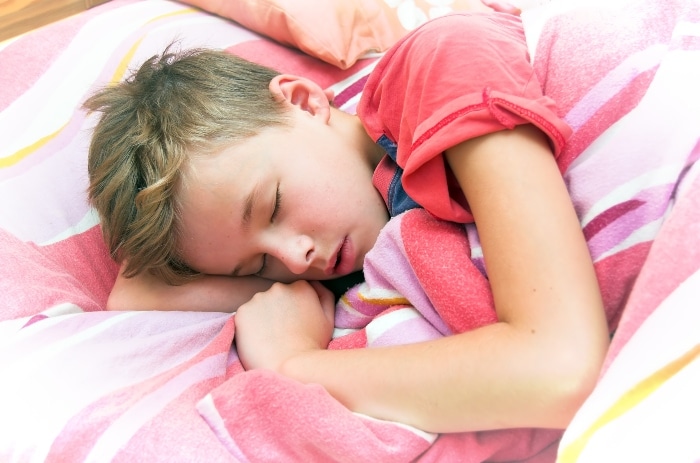Learn how parents can help their children dealing with insomnia! Insomnia affects anyone, regardless of age, and when it strikes children, it’s particularly distressing for parents. Sleep is essential for children’s overall health, growth, and well-being, making it a priority for parents to take action. Here are a few ways how parents can help their children dealing with insomnia.

Understanding the Causes of Insomnia in Children
There are several potential causes of insomnia in children. Common causes may include stress or anxiety, changes in routine, excessive screen time that excites the brain, or consumption of certain foods and drinks that stimulate the nervous system. In some cases, medical conditions such as sleep apnea, restlessness leg syndrome, or ADHD could be the underlying cause.
Understanding the root cause is the first step in addressing and managing your child’s insomnia. Consult with a pediatrician if you have any concerns about your child’s sleep patterns or if their sleeplessness worsens.
Establishing a Relaxing Bedtime Routine
Creating a consistent and calming bedtime routine is beneficial in combating insomnia in children. This routine could include reading a book, taking a warm bath, or spending some quiet time together. Also, establish consistent sleep and wake times, even on weekends, as this helps to regulate the child’s internal clock.
Limit the use of electronic devices during evenings as the light stimulates the brain to stay awake longer. Remember, the goal is to create a serene and peaceful environment that promotes relaxation and sleep.

Creating a Sleep-Inducing Environment
Designing the child’s bedroom with a focus on improved sleep greatly assists in managing insomnia. The environment should be quiet, dark, and cool for optimal sleep. Consider installing blackout curtains or shades to limit any external light that could disrupt your child’s sleep. A white noise machine or a fan masks disruptive sounds.
The bed should be comfortable, with a supportive mattress and soft, hypoallergenic bedding. Limit the bedroom to sleep-related activities to help the child associate the space with sleeping. Additionally, it might be useful to include a favorite comfort item, like a soft toy or blanket, that provides security and calm.
Encouraging Healthy Habits During the Day
Daytime habits play a pivotal role in promoting good sleep at night. Encouraging your children to engage in regular physical activity can tire them out and make them more ready for bed at nighttime. Equally vital is maintaining a healthy diet; try to limit their intake of caffeine and sugar, particularly in the late afternoon and evening.
Additionally, you could implement some homeopathic remedies for sleeplessness, such as Ignatia Amara, for a natural way to help your child feel calm as they fall asleep. Encourage natural methods, such as deep breathing, to help them independently put themselves into a headspace that helps them prepare for sleep and reduce anxiety.
Insomnia significantly impacts a child’s development, well-being, and overall quality of life. Parents need to recognize the signs of sleep issues and take proactive steps to help their children conquer insomnia. With these tips, parents can help their children deal with insomnia and rest easily, knowing their child will have a better night’s sleep.








These are really good tips and ideas. Insomnia can be so tough, especially in children.
These are incredible tips! I will be using them for my children (and myself haha).
It’s always a relief to find useful guidance on such important matters. I’ll definitely be implementing some of these suggestions to create a more soothing bedtime routine for my little ones.
These are great tips, That I will have to try, at ties I struggle with insomnia sometimes. Thanks for sharing this with us.
These are really good tips. My granddaughter sometimes experience insomnia and I have found rain apps to help her. Nature sounds like rain can indeed have a soothing effect and help people relax and fall asleep more easily.
It’s tough when it comes to treating insomnia in kids. Great tips to help work through it.
These are great ways to help children in dealing with insomnia! I didn’t get too lucky in that regard, as RLS runs in the family and it makes it difficult for the poor dears to just relax!! Though for what it could do, the techniques mentioned here did help with getting them to sleep a little faster.
my teenager is dealing with it now and magnesium helps to an extent for her..